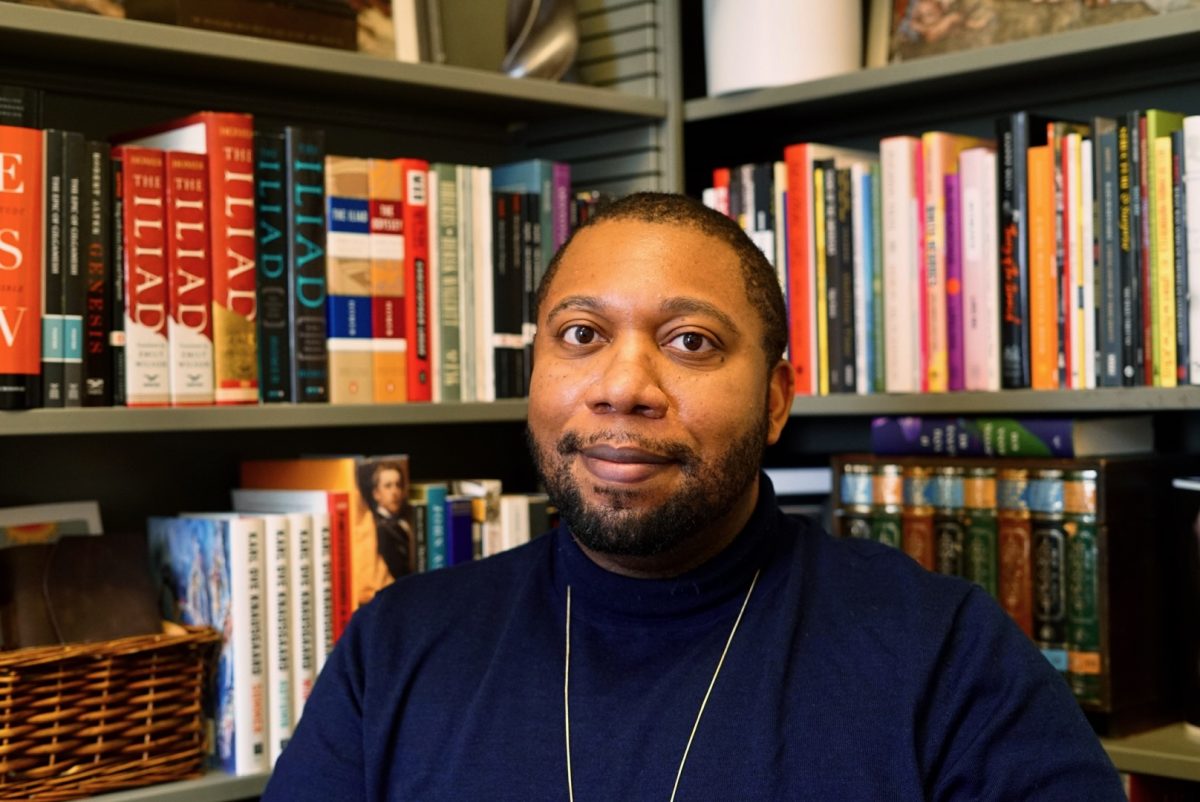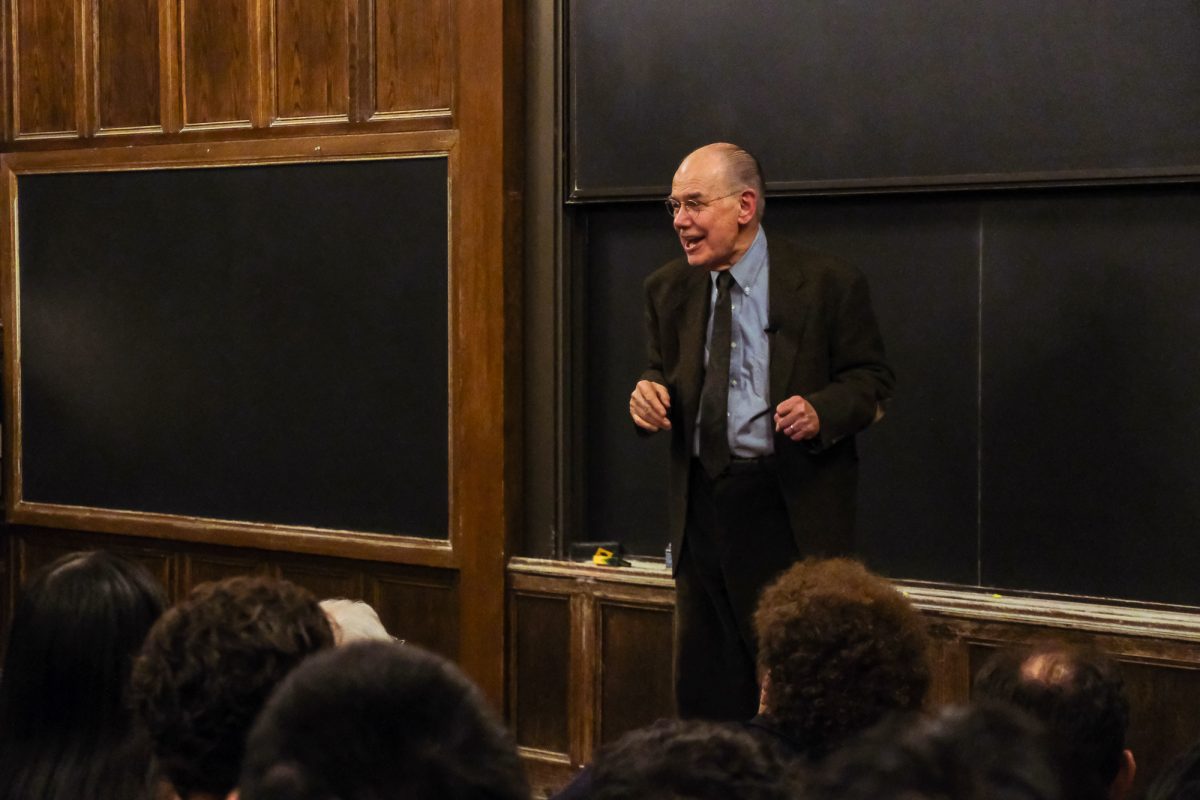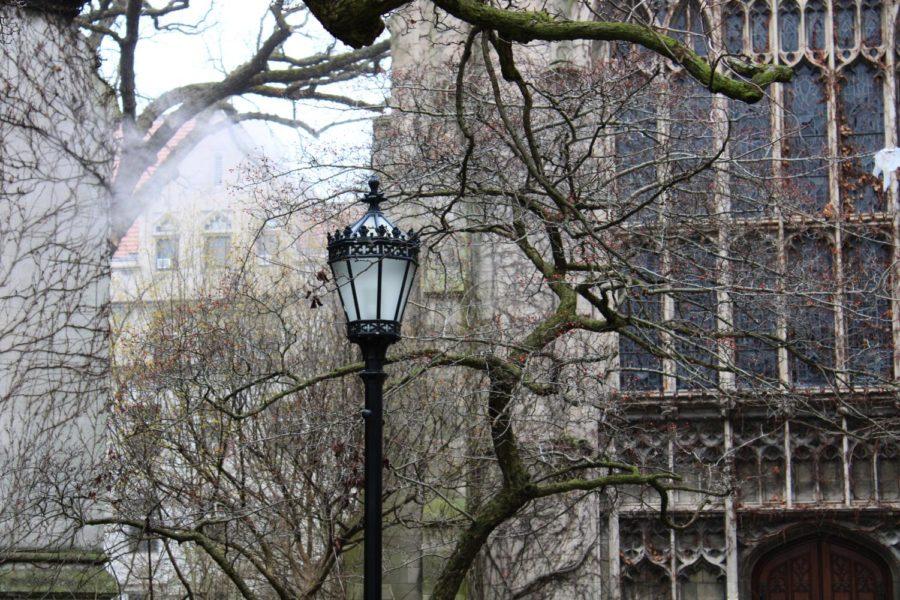The Provost’s Initiative for Minority Issues (PIMI) and the Office of Minority Student Affairs (OMSA) held a conference at Ida Noyes Tuesday evening to discuss the practices of the University of Chicago Police Department (UCPD) with concerned students. But once the event began, the topic on everyone’s mind—the Clemmie Carthans case—was immediately called off limits.
“We’re not going to discuss the Clemmie Carthans case,” said Steve Klass, vice president of the University and dean of students, in his opening remarks.
The panel included Vice President of Community Affairs Henry Webber, Executive Director of UCPD Rudy Nimocks, and Associate Clinical Professor of Law at the Law School Craig Futterman. It was aimed at easing the fears generated by the incident and encouraging students to voice their concerns about the UCPD and the complaints process.
Carthans, a black graduate student in the School of Social Administration, alleged that on January 23, 2004, he was physically assaulted by two UCPD officers after producing a valid UCID and attempting to cooperate with authorities. This incident and Nimocks’s refusal to apologize to Carthans upset some in the University community and sparked a wave of protests. Carthans has subsequently filed a civil suit against the University, explaining the premium the University has placed on not discussing the case.
Nimocks, when pressed about the Carthans case, reasserted the fact that investigations begin immediately upon receiving complaint. He also explained the complaint process. “Once a complaint is filed, an internal investigation begins immediately. Each week a progress report is due, so that we can see how an investigation is advancing. Once this is complete, we send our findings to the University Security Committee, which has the power to disagree with what we’ve found and request further investigation.” He added that one can make a complaint against a police officer to anyone in the police department, and further, could speak to the university administration.
Webber acknowledged the fact that the University Security Council lacks a timetable for its action, and was willing to propose revision. In his remarks, Webber also emphasized the UCPD’s importance to Hyde Park safety. “When I ask what the University can do to promote stable fixed-income high quality communities on the South Side, the first answer I hear is, ‘expand the borders of the university police force.’ This was done from 61st to 64th [Street] and from 39th Street to 47th Street,” he said. “This happened after very large public hearings and extensive review.”
According to Nimocks, the UCPD has 20-21 police cars patrolling the streets on a normal evening. The Chicago Police Department, by comparison, has four to five cars patrolling Hyde Park.
Futterman ended the lecture by speaking about what can be done to improve relations between police departments and the communities they serve. “The legitimacy of a community police force depends upon how open and transparent their procedures are, whether or not they treat community members with respect, how they involve the community in their activities, whether or not they make the effort to reach out to the community, and whether or not a culture of integrity exists,” he said.
Futterman also emphasized the problem of racial profiling. “The unconscionable reality now in 2004 is that racial disparity continues to pervade the entire criminal justice system,” Futterman said. “It is important to realize and acknowledge the role that race plays in formulating policy decisions. We must admit we’re not immune to this, and that the problem is not only a national one, but here in our own backyard.” Futterman prefaced his remarks by saying that he was in no way an expert on the UCPD, and that his comments were directed to general, wide-sweeping issues.
Students seemed pleased with the discussion. “We talked about what could be done and what needed changing,” said Bridget Wild, a second-year in the College. “It was an effective discussion, and great to see people’s suggestions being put into action. Tonight’s meeting was a result of someone’s suggestion.”
Attendees also felt there was room for improvement. “This is the first in what needs to be a continuing dialogue with the University police, students, and faculty,” said David Ferguson, a third-year Graduate Student in Sociology and OMSA Graduate Program assistant.
“The element that’s missing is the South Side community,” Ferguson said. “What police are doing is mistaking students for members of the African-American community in Hyde Park; What does that say about our view of the community? They should be here because they’re implicitly involved.”
11-19-04ucpd-workshop.jpg







